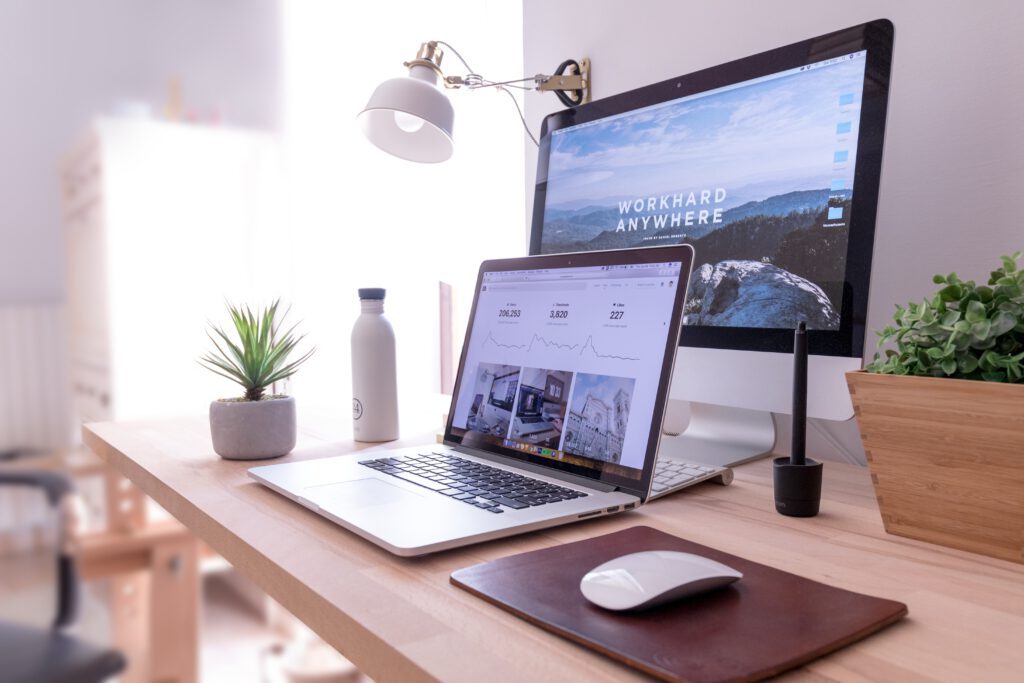In our fast-paced world, staying organized has become a valuable skill that can greatly enhance productivity, reduce stress, and improve the overall quality of life. Whether you’re a student, a professional, a homemaker, or anyone in between, maintaining order in your personal and professional life is essential. In this blog post, we’ll explore some practical tips and strategies to help you stay organized and lead a clutter-free life.
The Art of Staying Organized
- Declutter Regularly:
One of the first steps toward staying organized is to declutter your physical and digital spaces. Start with your home or workspace. Go through your belongings and remove items you no longer need or use. This will free up space and make it easier to find what you’re looking for. The same goes for your digital life – clean up your email inbox, files, and apps. When you declutter, you will also start to feel better. If your home is cluttered, your mind is probably too.
- Set Clear Goals:
To stay organized, you need to have a clear sense of what you want to achieve. Set both short-term and long-term goals, and break them down into smaller, actionable tasks. Having a sense of purpose and direction will help you stay on track and avoid feeling overwhelmed. The next time you start a new big project, divide it up into smaller goals.
- Create a To-Do List:
A to-do list is a simple yet powerful tool for staying organized. Each day, jot down the tasks you need to complete. Prioritize them based on importance and deadline. Crossing items off your list as you complete them is satisfying and keeps you focused. I like to use Notion for most things. I have many lists for everything, including a to-do list for work and personal life. In the morning, I just can look at my to-do what I still have to do and start working.
- Use a Planner or Calendar:
In addition to a to-do list, consider using a physical planner or a digital calendar to schedule your tasks and appointments. This will help you keep track of your commitments and prevent overbooking yourself. When I was still in school, I was the least organized person in my class and it did not make me feel great. I was always looking for certain papers and was not on top of my assignments. After school life, I became slowly more of an organized person. It actually makes me feel better as well.
- Organize Your Space:
A well-organized physical environment can do wonders for your productivity. Invest in storage solutions like shelves, cabinets, and drawers to keep your belongings neatly arranged. Label items and create designated spaces for different categories of items. I do this with papers, and documents but also with other stuff. I also know where something is if I need it.
- Digital Organization:
Your digital life can get just as cluttered as your physical space. Organize your files into folders with clear, descriptive names. Use software or apps to manage tasks, schedules, and notes. Regularly clean out your email and unsubscribe from newsletters that no longer serve you. Getting too many emails can be overwhelming, even when they are useless newsletters you never read.
- Time Management:
Time management is a key component of staying organized. Learn to allocate your time wisely, avoiding procrastination and time-wasting activities. Consider using time management techniques such as the Pomodoro Technique or time blocking to maximize productivity. With Pomodoro, you stay focused on your task for 30 minutes or longer and then you get a 5-minute break. There are many Pomodoro videos on YouTube with timers that might help you
- Delegate and Outsource:
You don’t have to do everything on your own. Delegate tasks when possible, and consider outsourcing certain activities that are not your strengths or that you don’t have time for. This can help you stay focused on what truly matters. This might not be an easy thing to do for everyone. Some people (like me) like to have control, but sometimes it is really better to ask for help. This frees up time for other things.
- Stay Mindful of Your Habits:
Staying organized is not just about physical and digital spaces; it’s also about your habits. Be aware of time-wasting habits, such as excessive social media use, and take steps to reduce or eliminate them. Cultivate good habits like setting aside time for self-care and relaxation. Become aware of how you spend your day and then try to improve where necessary. I am going, to be honest and say I wasted a lot of time on social media, but I realized I found other things more important, and slowly I started to do those things instead of scrolling on social media.
- Review and Adjust:
Staying organized is an ongoing process. Regularly review your systems and routines to identify areas where you can improve. Be flexible and willing to adjust your strategies as needed. Nobody is the same, so find out what is working for you and what is not. And remember nobody is perfect!
Photo by Domenico Loia on Unsplash
